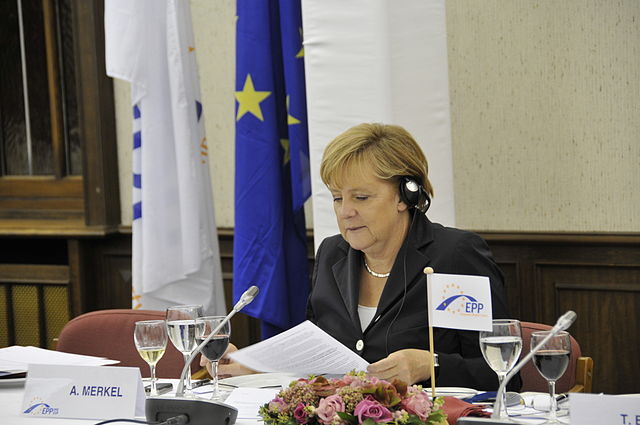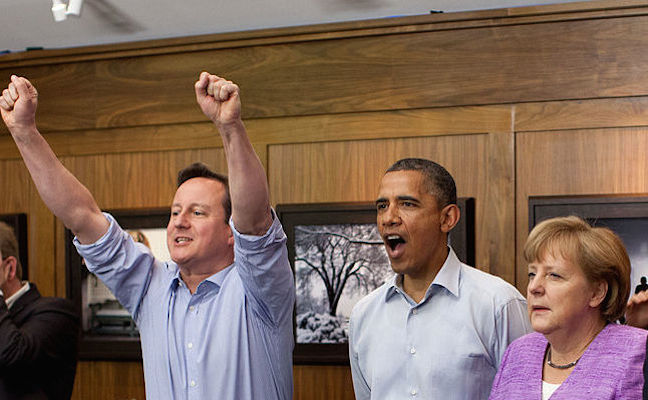German Chancellor Angela Merkel, Chair of the center-right CDU, is being praised for participating in a rally against Islamophobia today (following up on her New Year’s remarks on the same subject). In particular, one line she issued today is getting a lot of attention:
Merkel, who is often known to avoid controversial issues, has weighed in strongly, condemning PEGIDA’s leaders and stressing on Monday that “Islam is part of Germany” – a comment that was plastered on the front pages of leading newspapers.
Not everyone in her party is happy about that is happy about that:
But it drew criticism from a range of right-wing politicians, including members of Merkel’s CDU.
“What Islam does she mean? Does this include fundamental Islamist and Salafist currents?” said Wolfgang Bosbach, a veteran CDU lawmaker. “Germany has a Judeo-Christian, not an Islamic, cultural tradition.”
This is not the first time Mr. Bosbach, a member of the Bundestag (national parliament) since 1994, has made remarks ostracizing German Muslims. He is a high-ranking member of the governing CDU party, however, and accusing his party leader and chancellor of being supportive of “fundamentalist Islam and Salafist currents” (a strand of hardline thinking that has been behind the extremist attacks and anti-democratic activities within radical Sunni Islam over the past two decades) is a disgusting and shameful attack.

German Chancellor Angela Merkel (CDU), September 2010. Credit: European People’s Party via Wikimedia






